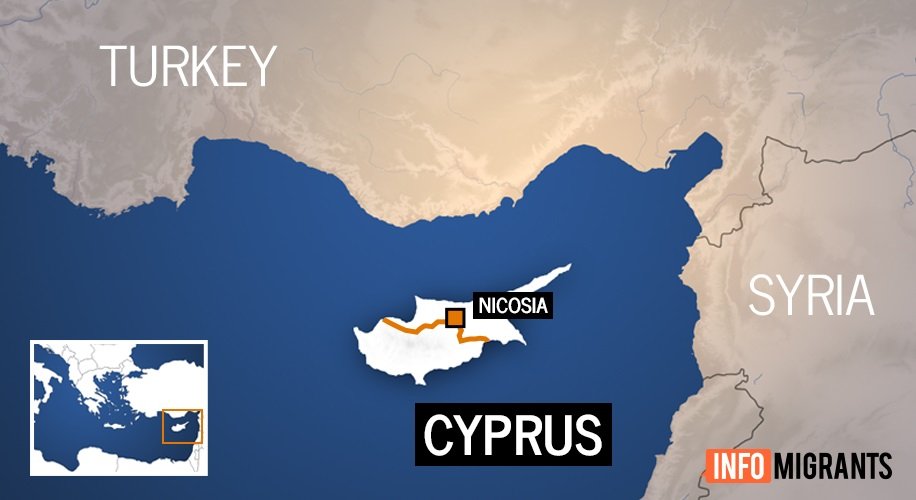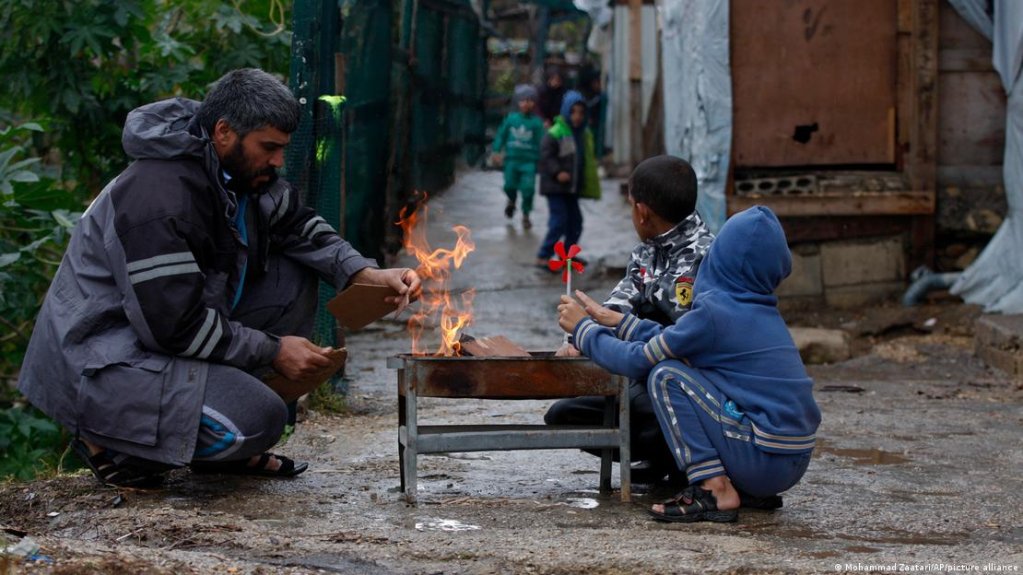Human Rights Watch claims that, as part of EU-funded efforts to control migration, Cypriot authorities have forcibly returned Syrian refugees to Lebanon, where they were subsequently deported by Lebanese security agencies.
Lebanese and Syrian authorities are working together to prevent Syrian refugees from reaching Europe and deporting them back to war-torn Syria, alleges a report by a human rights watchdog.
Human Rights Watch (HRW) released a 90-page report "I Can't Go Home, Stay Here, or Leave" on Wednesday (September 4) documenting how attempts by Syrian refugees to flee Lebanon are intercepted by the Lebanese army who forcibly return them to Syria.
Cyprus, on the other hand, has in recent years become a common destination for irregular arrivals coming from Lebanon. In September 2020, HRW documented the summary pushback or expulsion of reportedly more than 200 migrants, refugees, and asylum seekers coming to Cyprus from Lebanon, from where they were immediately expelled to Syria, according to HRW. Cyprus is a member state of the European Union.
"What we are seeing is a situation where people are held in a no man’s land between Lebanon and Syria and a collusion between the Lebanese and Cypriot authorities and smuggling networks to send back refugees to Syria," Nadia Hardman, HRW Researcher for the Refugee and Migrant Rights Division told InfoMigrants.

The HRW report, composed of interviews with 16 Syrian refugees between August 2021 and September 2023, some of whom told HRW that they paid smugglers anywhere between 1,600 US dollars (1,447 euros) to 6,000 US dollars (5,426 euros) per passenger to facilitate dangerous boat crossings from Lebanon on board rickety boats.
HRW corroborated testimonies from Syrian refugees with photographs, videos, and tracking data. Additionally, HRW also reported speaking with seven representatives of non-governmental organizations working with Syrian refugees, a Lebanese lawyer, and the Lebanon offices of two United Nations organizations and two humanitarian agencies.
The HRW report slammed what it called "Lebanon’s summary expulsion of pulled-back and Cyprus-expelled Syrians" as a violation of the principle of nonrefoulement. "Cyprus is also violating the prohibition on indirect, chain, or secondary refoulement, by expelling Syrian refugees to Lebanon where they risk onward expulsion to Syria."
The principle of non-refoulement in international human rights law prohibits returning anyone to a country where they risk torture, inhumane treatment, or irreparable harm. This protection applies to all migrants, regardless of their migration status.
"The European Union is funding and assisting border management agencies committing non-refoulement. Surely, that should be a red line," said HRW’s Hardman.
Hosting the most number of refugees
According to 2024 figures by UNHCR, Lebanon remains the country hosting the highest number of refugees per capita, hosting close to 800,000 registered Syrians.
Lebanon does not officially recognize Syrians as refugees, officially referring to Syrians seeking protection in Lebanon as "displaced" rather than "refugees". Lebanon is not a signatory to the 1951 Refugee Convention.

Since the 2020 Beirut port explosion, Lebanon has struggled with a crippling economic crisis worsened by the COVID-19 pandemic. The conflation of these developments has worsened living conditions for the country, with Syrian refugees being particularly hard hit.
"It is miserable to be a Syrian refugee in Lebanon. They routinely face arbitrary arrest and detention. They live a life of indignity. The environment is increasingly xenophobic and it is getting worse every year. It is a coercive environment designed to make them want to leave," Hardman explained.
Hostile conditions in Lebanon for refugees
The rise in the number of irregular boat crossings leaving Lebanon runs in parallel with the increasingly hostile environment for Syrians in Lebanon.
In 2021, the United Nations High Commissioner for Refugees (UNHCR) recorded 38 attempted sea departures involving 1,570 individuals. In July 2024, the UNHCR recorded 61 attempts to reach Cyprus, involving 2,541 individuals.
Most of those attempting these irregular sea crossings were reportedly Syrians, followed in smaller numbers by Palestinians and Lebanese nationals.
Also read: EU pledges €7.4 billion in aid to Egypt as it seeks to curb migration
HRW: EU funds paid for rights abuses
The European Union (EU) and its member states have provided various Lebanese security authorities with as much as 16.7 million euros in funding from 2020 to 2023 to implement border management projects.
This May, the EU allotted a broader 1 billion euro package to Lebanon through 2027, including money to the "Lebanese Armed Forces and other security forces with equipment and training for border management and to fight against smuggling."
While the bulk of the funding, an estimated 736 million euros, will reportedly go to supporting Syrian refugees "and other vulnerable groups" in Lebanon, about 200 million euros will fund the infrastructure, equipment, and training for Lebanese military and security forces to bolster its border controls and stem migrant smuggling.
Read more: European Union announces aid package for Lebanon
The EU has entered into similar agreements with countries such as Egypt, Tunisia, and Mauritania.
"The European Union is underwriting and outsourcing abusive border and migration management policies by not calling for conditionality to their funding or conducting any human rights impact assessments tagged to their funding," HRW's Hardman added.
In a statement asking for comment on the allegations, a European Commission spokesperson told InfoMigrants that all EU contracts have human rights clauses that allow the Commission to adjust implementation as necessary.
"The EU remains committed to work with Lebanon on a structured approach to safe, voluntary, and dignified returns and a comprehensive one to migration management. This includes creating regular migration pathways, tackling the root causes of irregular migration, and combating migrant smuggling and trafficking of persons," read the statement.
Additionally, the spokesperson detailed the 1 billion euro aid package to Lebanon as support to improve the country's economy and the most vulnerable people in the country.
"The first part of the EU financial package worth 500 euros million to support Lebanon and its people in 2024 and 2025 was adopted on 1 August. This amount includes 368 million euros in support to access and delivery of basic services to vulnerable Lebanese and refugees from Syria as well as durable solutions," the statement added.
Another 132 euros million from the bilateral allocation under the EU's Neighborhood Development and International Cooperation - Global Europe Program NDICI-GE, the EU's main financing instrument for external cooperation.
According to the spokesperson, "The EU expects Lebanon, like any partner, to fulfill its international obligations, including as regards the respect for the principle of non-refoulment and for the human rights of refugees."
Also read: Mauritania – a new irregular migration gateway to Europe?
